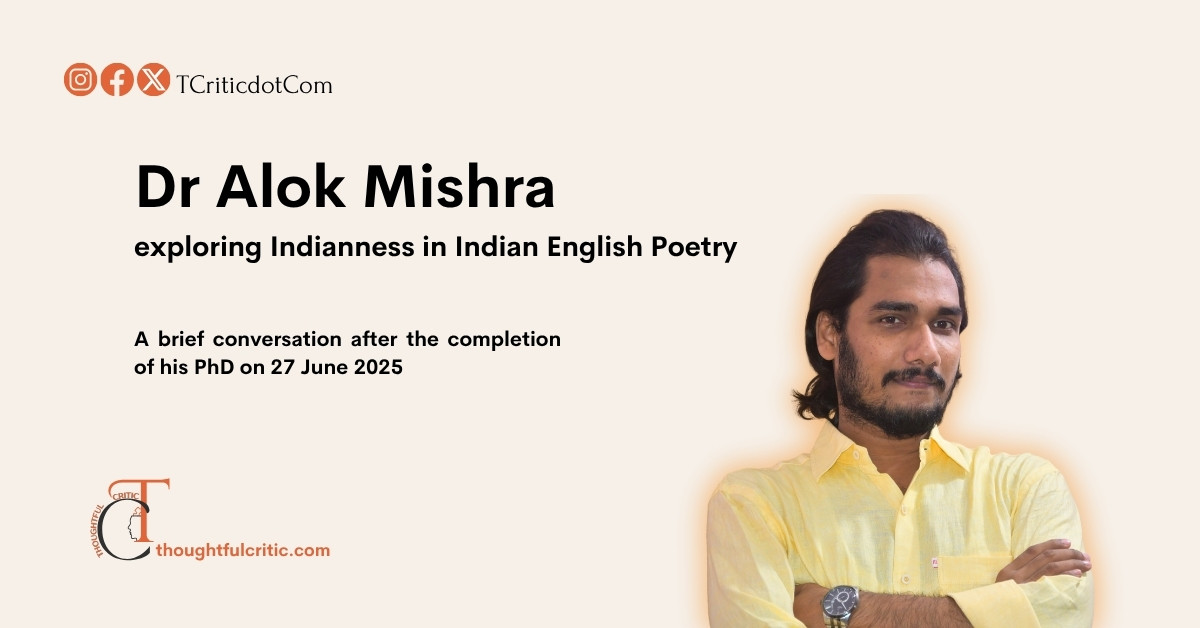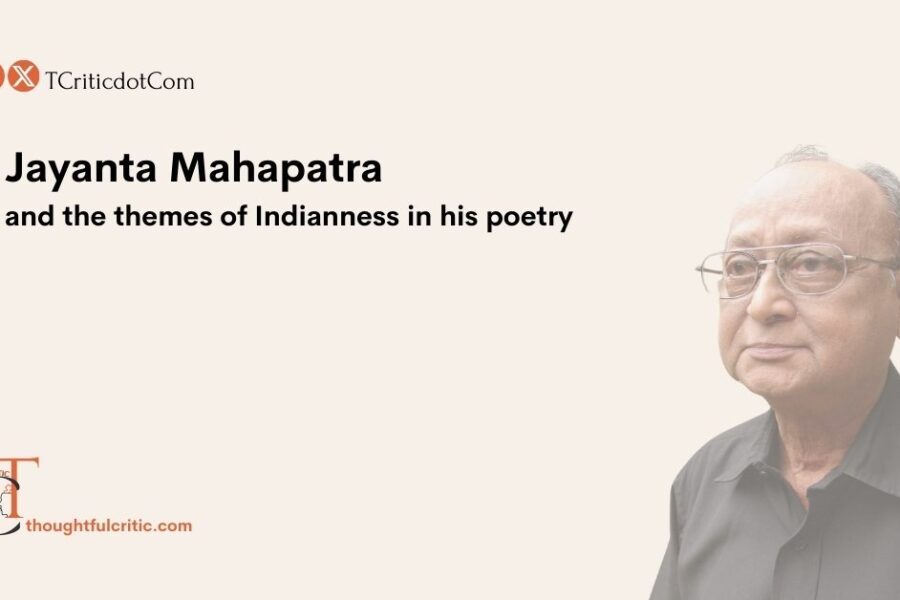On the warm afternoon of June 27, 2025, the academic corridors of Nava Nalanda Mahavihara buzzed with scholarly excitement and celebration. In a packed conference hall echoing with applause, Alok Mishra—poet, critic, editor, and influential voice in contemporary Indian literary discourse—successfully defended his doctoral thesis titled “In Search of Roots: Indianness in Indian English Poetry.” Before an esteemed panel of professors, research scholars, and students, Mishra eloquently argued his case for a deeper understanding of the civilisational essence within Indian English poetic expressions.
The occasion was more than just a milestone in an academic journey—it was a culmination of decades of intellectual inquiry, creative engagement, and passionate advocacy for Indian literature. Known for founding platforms such as English Literature Education and The Indian Authors, and for being a poetic voice in his own right, Alok Mishra has long advocated for literature that resonates with India’s philosophical and spiritual traditions.
Following his successful defence, I had the opportunity to engage in an intellectual exchange with Dr. Mishra for a reflective conversation. What emerged was not just an overview of his research but a profound meditation on the idea of Indianness itself. Below is the full interview, although it is brief in length and has been lightly edited for clarity and structure.

Dr Alok Mishra with Prof Shrikant Singh, 27 June 2025, during the viva voce of his doctoral thesis
Interview Begins
Q: Dr. Mishra, let’s begin with the central concern of your thesis. What does “Indianness” mean in the context of Indian English poetry?
Dr Alok Mishra: “Indianness in Indian English poetry is not quantitative data to be measured or evaluated merely by looking at it from a distance. It is a civilisational continuum, a cultural connection, an unbroken philosophical thread, and a spiritually charged religious consciousness that has been constantly present for ages… Indianness is the common factor that blurs the linguistic boundaries between Indian English poetry and poetry in other Indian languages.”
Q: That’s a powerful assertion. Do you believe that Indianness in poetry transcends language itself?
Dr Mishra: “Yes, it is the common factor that blurs the linguistic boundaries between Indian English poetry and poetry in other Indian languages.”
Q: Over the course of your research, how did you see Indianness evolve—or did it evolve—across different poetic generations?
A: “The trajectory of Indianness in Indian English poetry has not been uniform. To be frank, there is no such trajectory if you ask! It has always been a fully realised expression by individual poets in various periods of Indian history.”
Q: Can you identify any key moments or shifts in how this Indianness was expressed?
A: “Yes, there have been certain external factors that have affected individual expression from time to time. Especially after Indian independence from the British in 1947, the post-colonial dilemma, expectations from the leadership and widespread dismay after not meeting the all-flowery expectations from the hard-fought independence compelled the second generation of acclaimed Indian English poets, led by Nissim Ezekiel, to break free from the continuity of the lineage of Indianness drawn from the yester-centuries of classical Indian poets in Sanskrit and other Indian languages cherished by English poets before independence.”
Q: That’s fascinating. So you’re suggesting that poets like Ezekiel responded to both hope and disillusionment in a unique poetic voice?
A: “The collective consciousness of India, striving together for freedom and riding the waves of a shared heritage and past glory, as expressed by the poets and admired by readers, gradually took individual shapes. Poets began to express a fragmented sense of disillusionment, challenges, hardships, and existential dilemmas that were no longer spiritual or religious in depth. Still, merely literal… so, one might say the universal becomes individual in the hands of the Indian English poets after the independence, compelled by the social truths and countersigned by the uncontested challenges. Coming to Ezekiel individually, yes, he did respond to hope and challenges, acceptance and rejection, enthusiasm and rebuttal, his poetry, in short, becomes a collage of the poet seeking to balance the opposite forces. Yet, the poet never fully disconnects himself from his Indian roots. In later poetry, Ezekiel accepts that with all the limitations the Indian experience may have, it is wonderful to be here.”

Reflections from the Viva Voce
Dr. Mishra’s viva, according to attendees, was a blend of poetic insight and scholarly rigour. He fielded challenging questions with composure, drawing upon not only literary criticism but also Indic philosophy and post-colonial theory.
His assertion that Indianness is “a spiritually charged religious consciousness” sparked vibrant discussion during the defence. A senior professor challenged the practical applicability of such a concept in textual analysis. Mishra countered by illustrating how poets like Aurobindo and Toru Dutt did not merely “use” religion or spirituality but lived through it, embedding their metaphysical understanding directly into verse.
He also highlighted how the idea of “civilisational continuum” makes it possible to understand the presence of Indianness in poets separated by time, language, or political climate, thus connecting ancient cultural motifs with modern poetic expression.
About the Researcher
Alok Mishra’s academic journey mirrors his literary activism. Long before entering the formal bounds of PhD research, he had already engaged with Indian English writing as an editor, poet, and public intellectual. His poetry collection, “Being in Love,” revealed a lyrical sensitivity; the later collections, especially “Moving for Moksha”, reflect his maturing verse laden with the accentuated ancient Indian philosophy and spiritual depth, while his critical essays brought clarity to debates surrounding literary merit and cultural representation.
By turning his intellectual focus to the roots of Indian English poetry, he didn’t merely study texts; instead, he tried to shed light on the heritage embedded within them.
Concluding Reflections
Dr Alok Mishra’s research is poised to shape future inquiries into Indian English poetry in more ways than one. By placing “Indianness” at the heart of literary exploration—not as a stylistic garnish but as a civilisational imperative—his thesis opens up pathways for scholars, critics, and poets alike.
This study helps future researchers frame questions around cultural identity not as binaries (East vs. West, Indian vs. English) but as complex and interconnected currents. It invites literary scholars to look beyond colonial hangovers and linguistic categories, and instead examine the lived, spiritual, and philosophical continuities that define Indian creative expression across languages and across time.
For young scholars standing at the confluence of tradition and modernity, Dr Mishra’s work serves as a reminder that poetry, in the Indian context, is not merely verse—it is a voice, a history, and an inheritance.
Interview and article by Shubham
© 2025. All rights reserved.



